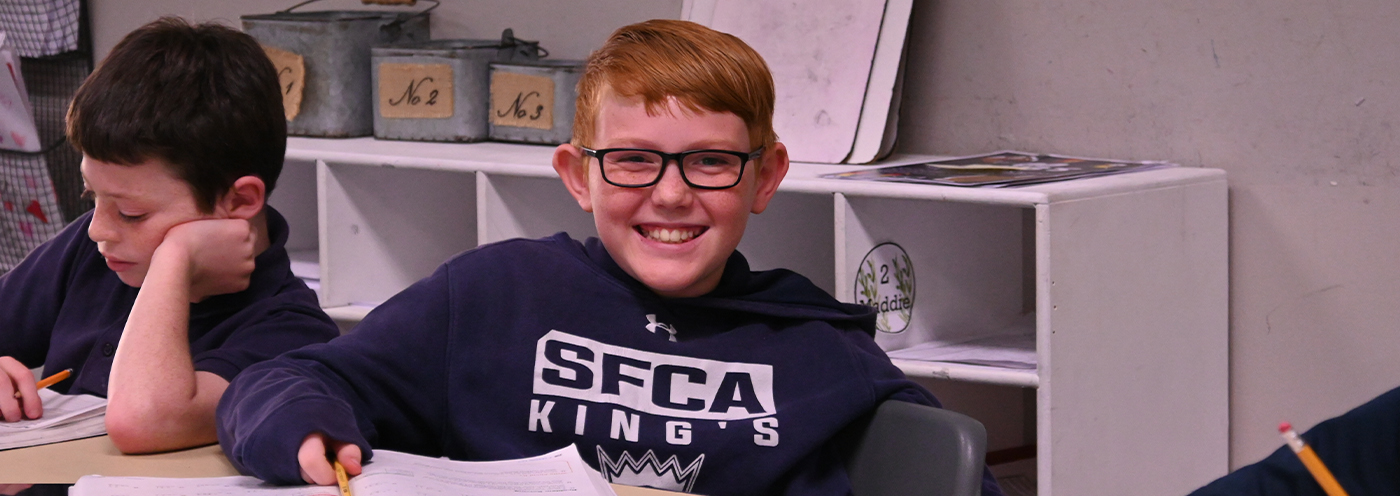Virtual Learning Etiquette
Student Expectations:
- Physical space used for learning should be clean and clutter-free.
- Clear the room of playful pets or noisy siblings - the learning environment should be quiet and distraction-free.
- Have everything you need with you before you begin: pencil/pen, notebook, textbook, workbooks, etc.
- Minimize background noise by turning off the TV or any other device emitting audio (including cell phones).
- No inappropriate poster or backgrounds should be seen behind the student.
- Student should always be sitting upright at a desk or table.
- Students should be wearing tops that are appropriate and full cut (no mid-drift, no shoulders showing) with no inappropriate wording.
- Students should check teacher lesson plans and assignments on Weebly (Grades K-4) and Canvas (Grades 5-12) daily.
- Students should communicate needs/questions to teachers and administrators in a timely, respectful manner.
Online Meetings/Class Discussions:
- Keep the microphone off/muted unless your teacher asks you to turn it on.
- Use the chat function to ask questions.
- School technology rules apply to a virtual classroom; therefore, students are not permitted to take or post images/videos of classmates or instructors to the web or any social media sites.
- Think before you post (Is it true? Is it helpful? Is it inspiring? Is it necessary? Is it kind?) If the answer is no to any of these, then do not post it.
- Use humor sparingly for it is harder to tell if someone is joking online.
- Students should be the only ones interacting during online class sessions. Parents may supervise but not participate.
Tips for Successful Online Learning
How to be a Successful Online Learner
- Create a Study Environment Conducive to Learning
- Peace and quiet – Establish a place to work without distractions like TV, digital devices, social media, or people who live with you.
- Create a regular study space and stay organized - this helps establish routine.
- Avoid games.
- Turn off your cell phone.
- Beware of surfing the black hole of the internet - it is easy to lose track of time.
- Sit in an upright chair with a table or desk for formal learning.
- Set up good lighting and comfortable seating.
- Gather your tech and other learning materials ahead of time and be ready when class starts. (other materials may include pen/pencil, notebook, textbook, workbook, etc.)
- Treat your online course just as you would if you were in the classroom with your teacher. All rules and expectations still apply on a virtual platform.
- Have Effective Time-Management Skills
- Review assignments and check lesson plans daily.
- Weebly – K-4 / Canvas – 5-12
- Make a daily and/or weekly “To Do” list. Check items off as you complete them!
- Break down large tasks into smaller ones to complete larger assignments by the due date.
- Review assignments and check lesson plans daily.
- Use Effective and Appropriate Communication Skills
- Teachers and Staff want to help you succeed! Use the tools you have been provided to communicate with your teacher. (Email, discussion groups, virtual online meetings, teacher office hours)
- Use appropriate style and language for school. Write in full, grammatically correct sentences and with a respectful tone. Treat teachers and peers with respect and curtesy.
- Be Persistent
- When you run into a challenge – keep trying! Ask for help if needed.
- Set up a daily study schedule for yourself and STICK TO IT!
Adapted from Minnesota State’s Online Successful Learner https://careerwise.minnstate.edu/education/successonline.html

